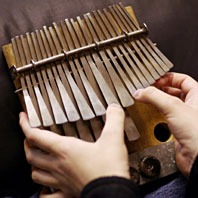I Am Kloot - I Still Do
Oi Va Voi - Yesterday's Mistakes
Ana Moura - No Expectations
A couple of weeks ago I went off to the WOMAD festival. Despite its reputation as an exclusively world music affair, I actually found that in terms of the range of music on offer there's quite a lot more to it than that. For example. we also got:
- the genre-defying Penguin Cafe,
- lounge-dubsteppers(?) Submotion Orchestra: meaty bass-pedal effects to make your chest rattle and flugelhorn to send your spirits a-soaring,
- Louisiana's Feufollet, beloved of Elvis Costello, peddling an interesting cocktail of cajun (all fiddles and accordions) and indie (all guitars and winsome vocals), and
- Guy Garvey's Mercury-nominated mates I Am Kloot.
I know some people go to festivals to have a good ole party and consequently maybe judge the quality of the music on the extent to which it allow them to jolly well dance their socks off, but for me the great moments of the weekend were the quieter ones. I have to say that these three songs fair brought a lump to my throat...
Genial lead Klooter Pete Branwell admitted that the band had been sceptical about coming to WOMAD and "weren't sure they would fit in". They got a good reception though from what seemed to be a preponderance of white males of a certain age (er, like me...). This was a great pin-drop moment:
Oi Va Voi gave as energetic a performance as ever and went down a storm with the party people. I'm not sure though they've ever matched the quality of the songwriting on their first album, is it really eight years ago? I doubt that KT Tunstall (for it is she) ever regretted her move away from the band in view of the millions of albums she's shifted since, but for me this is by far the best thing she's written. Also what I'm guessing is Steve Levi's "cantorial" singing--anyone?--gets me every time:
I'm not generally a massive fan of Fado but I really enjoyed Ana Moura's performance. I'm sure world music purists would cringe at my lack of deference to nearly two centuries of Portuguese musical tradition but for me this Rolling Stones cover was the highlight of her set:
Next week something more upbeat, I promise...







